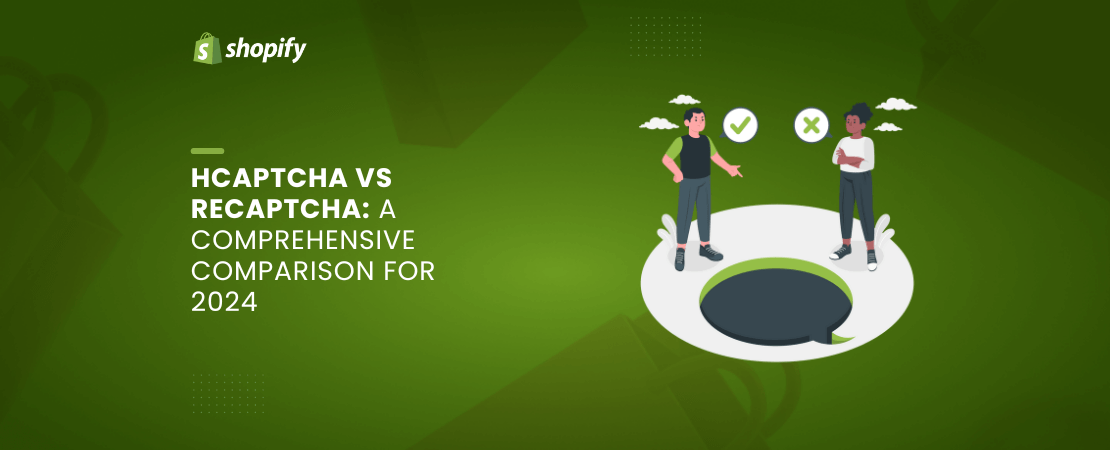CAPTCHAs (Completely Automated Public Turing tests to tell Computers and Humans Apart) are essential tools for websites to distinguish between human users and bots. Two of the most popular CAPTCHA services are Google reCAPTCHA and hCaptcha. This article delves into a detailed comparison between hCAPTCHA vs reCAPTCHA, examining their mechanisms, compliance with regulations, benefits, and drawbacks.
Google reCAPTCHA: The Popular Choice to Fight Bots
Understanding Google’s reCAPTCHA
Google reCAPTCHA is one of the most widely used CAPTCHA solutions. It operates by analyzing user interactions with websites to distinguish humans from bots. The latest version, reCAPTCHA v3, uses a score-based system to evaluate the risk of a user being a bot based on their behavior. For reCAPTCHA v2, users are often required to solve image or text-based challenges.
GDPR Compliance of Google reCAPTCHA
Google reCAPTCHA is designed to comply with the General Data Protection Regulation (GDPR). However, compliance largely depends on the implementation by individual website owners. They must ensure that user consent is obtained and that privacy policies are transparent about data collection and usage.
Benefits of Google reCAPTCHA
- High Accuracy: Google’s sophisticated algorithms provide high accuracy in detecting bots.
- User Experience: The invisible reCAPTCHA v3 enhances user experience by operating in the background without user interaction.
- Integration: Seamless integration with Google’s ecosystem and various website platforms.
Drawbacks of Google reCAPTCHA
- Privacy Concerns: Data collected by Google can raise privacy concerns among users.
- User Experience in Some Cases: reCAPTCHA v2 can be intrusive, requiring users to solve complex puzzles.
- Accessibility Issues: Some challenges may be difficult for users with disabilities.
hCaptcha: The Image Classification Task-Based CAPTCHA Solution
Understanding hCaptcha
hCaptcha is an alternative CAPTCHA solution that focuses on image classification tasks. Users are asked to identify specific objects within images, which helps websites distinguish humans from bots. hCaptcha also provides an option to monetize CAPTCHA challenges by contributing to machine learning datasets.
GDPR Compliance of hCaptcha
hCaptcha is designed to be GDPR compliant, with a strong focus on user privacy. It collects minimal personal data and provides website owners with tools to manage user consent and data protection.
Benefits of hCaptcha
- Privacy-Focused: hCaptcha emphasizes user privacy and minimal data collection.
- Monetization: Website owners can earn revenue by contributing to machine learning datasets through hCaptcha.
- Customization: Offers customizable CAPTCHA challenges tailored to specific website needs.
Drawbacks of hCaptcha
- User Experience: Image classification tasks can be tedious and disrupt user experience.
- Adoption: Less widely adopted compared to Google reCAPTCHA, which may affect trust and reliability perceptions.
- Accessibility Issues: Similar to reCAPTCHA, some challenges may be difficult for users with disabilities.
Comparing hCaptcha and reCAPTCHA
Security and Effectiveness
Both hCaptcha and reCAPTCHA offer robust security measures to protect websites from bots. Google reCAPTCHA leverages advanced machine learning and a large dataset for accurate bot detection. hCaptcha, while effective, might not have the same level of sophistication but compensates with its focus on privacy and monetization options.
User Privacy
hCaptcha takes a strong stance on user privacy, collecting minimal data and offering clear compliance with GDPR. Google reCAPTCHA, while GDPR compliant, involves data sharing with Google, which can be a concern for privacy-conscious users.
User Experience
Google reCAPTCHA v3 offers a seamless user experience by operating in the background. However, reCAPTCHA v2 can be intrusive. hCaptcha’s image classification tasks are engaging but can be perceived as tedious by users, potentially impacting the overall user experience.
Monetization
hCaptcha stands out with its unique monetization feature, allowing website owners to earn revenue through CAPTCHA challenges. Google reCAPTCHA does not offer a similar feature.
Accessibility
Both services face challenges in accessibility, with some tasks being difficult for users with disabilities. Website owners must consider alternative solutions to ensure their sites remain accessible to all users.
Integration
Google reCAPTCHA benefits from easy integration within the Google ecosystem and widespread support across various platforms. hCaptcha, while also offering easy integration, might require more effort for sites heavily integrated with Google’s services.
Conclusion
Choosing between hCaptcha and reCAPTCHA depends on specific needs and priorities. Google reCAPTCHA offers high accuracy and seamless integration but raises privacy concerns. hCaptcha provides strong privacy protection and monetization options but may affect user experience. Website owners should evaluate these factors carefully to select the CAPTCHA solution that best aligns with their requirements.




